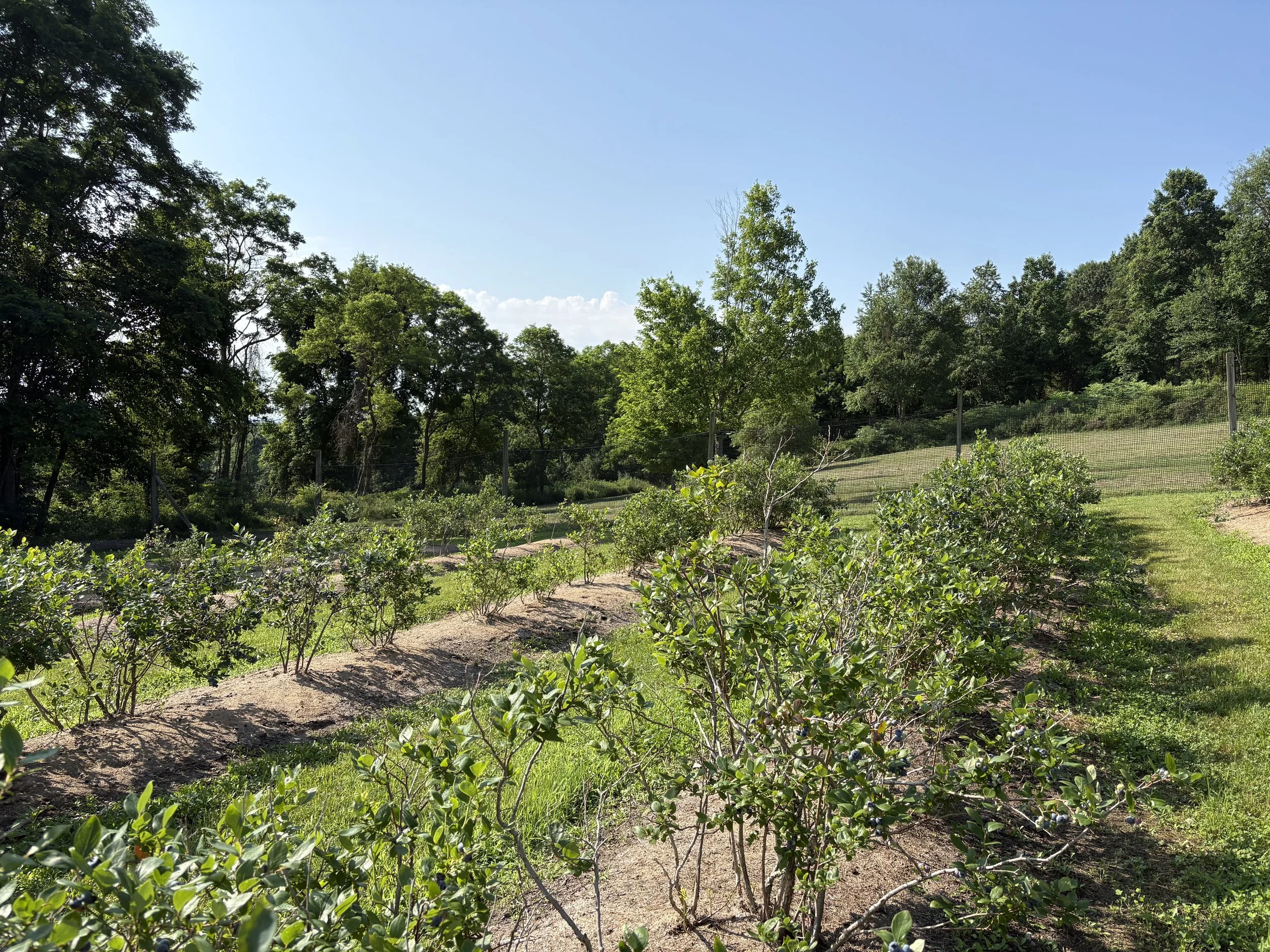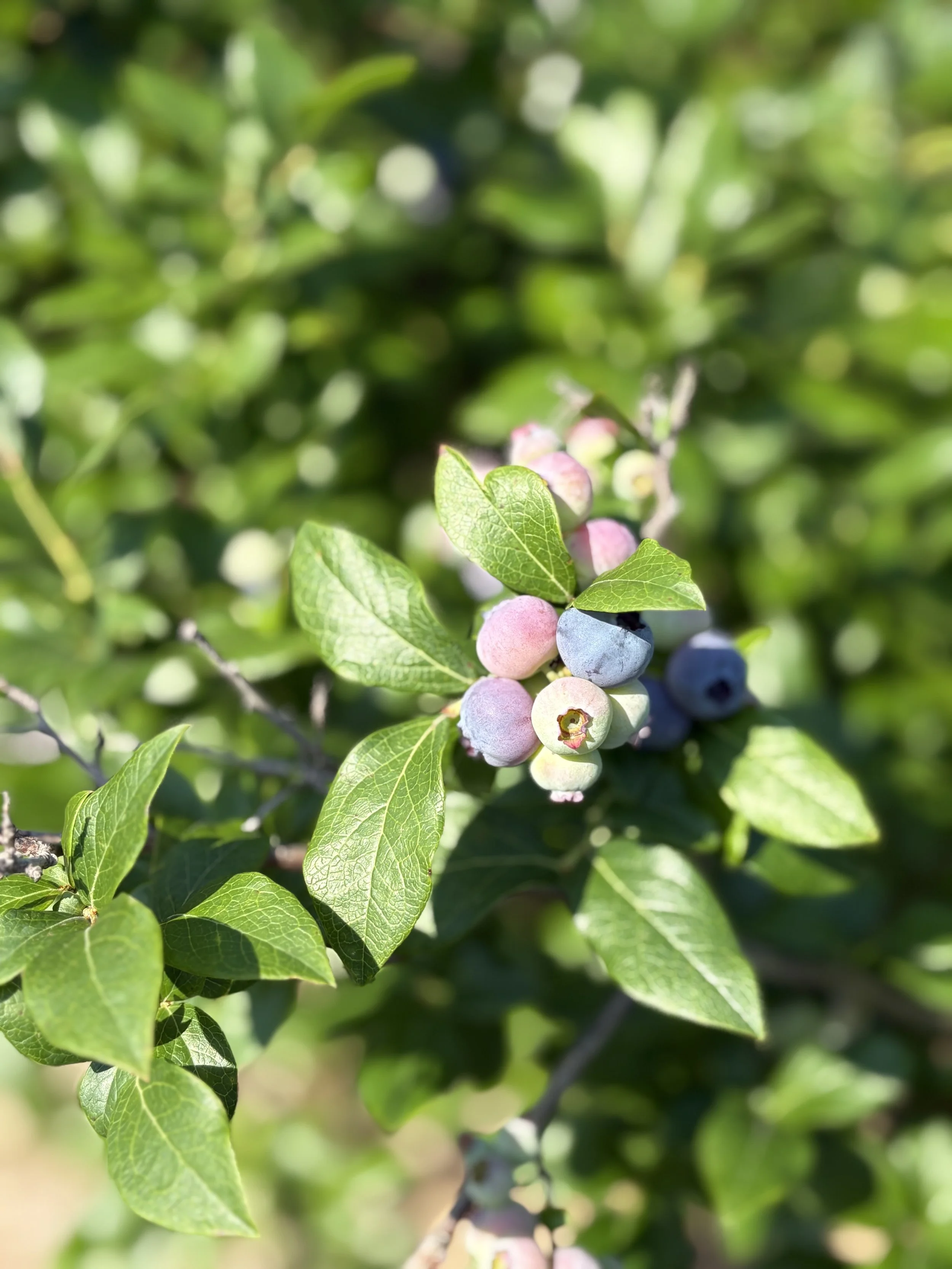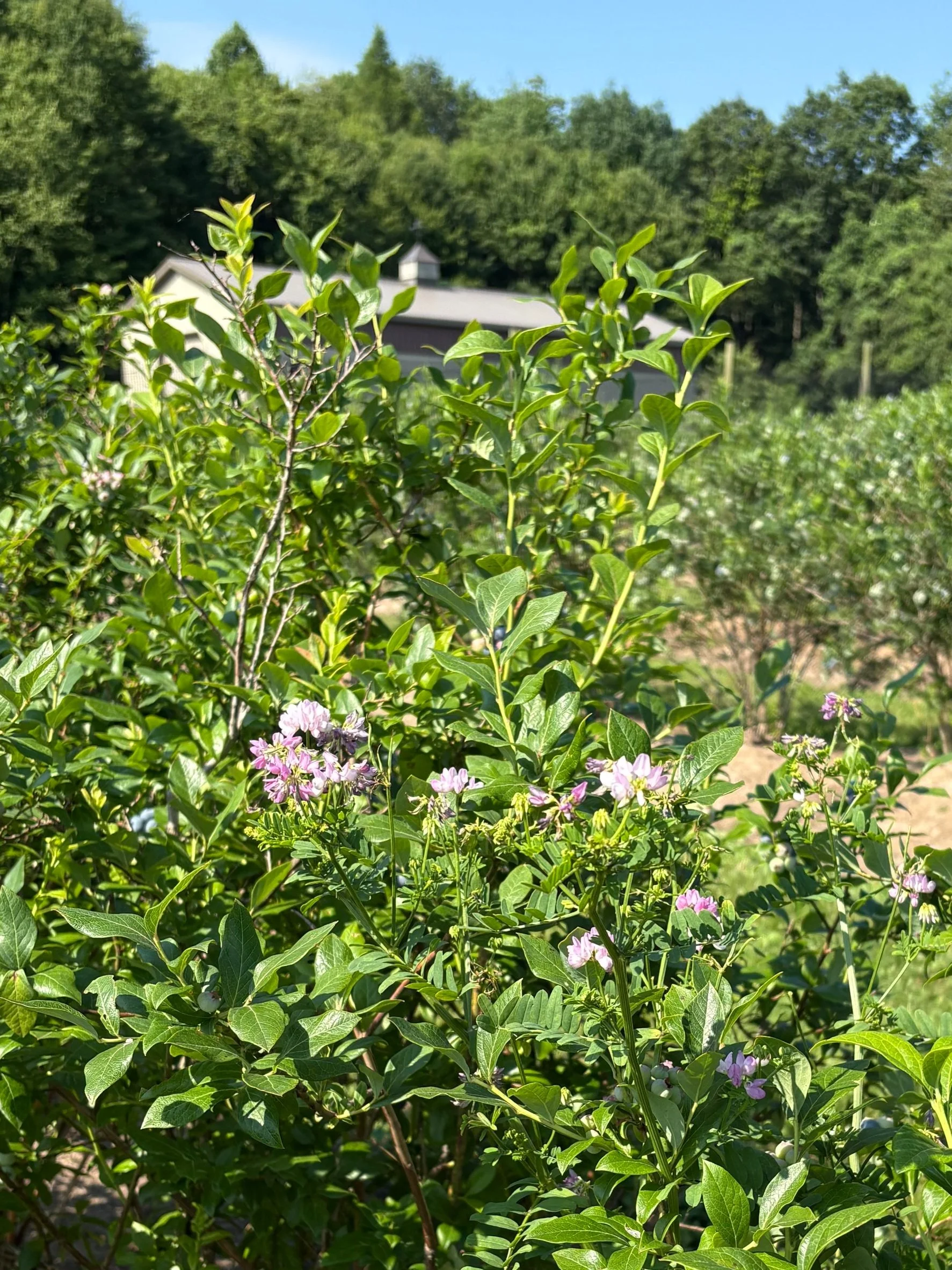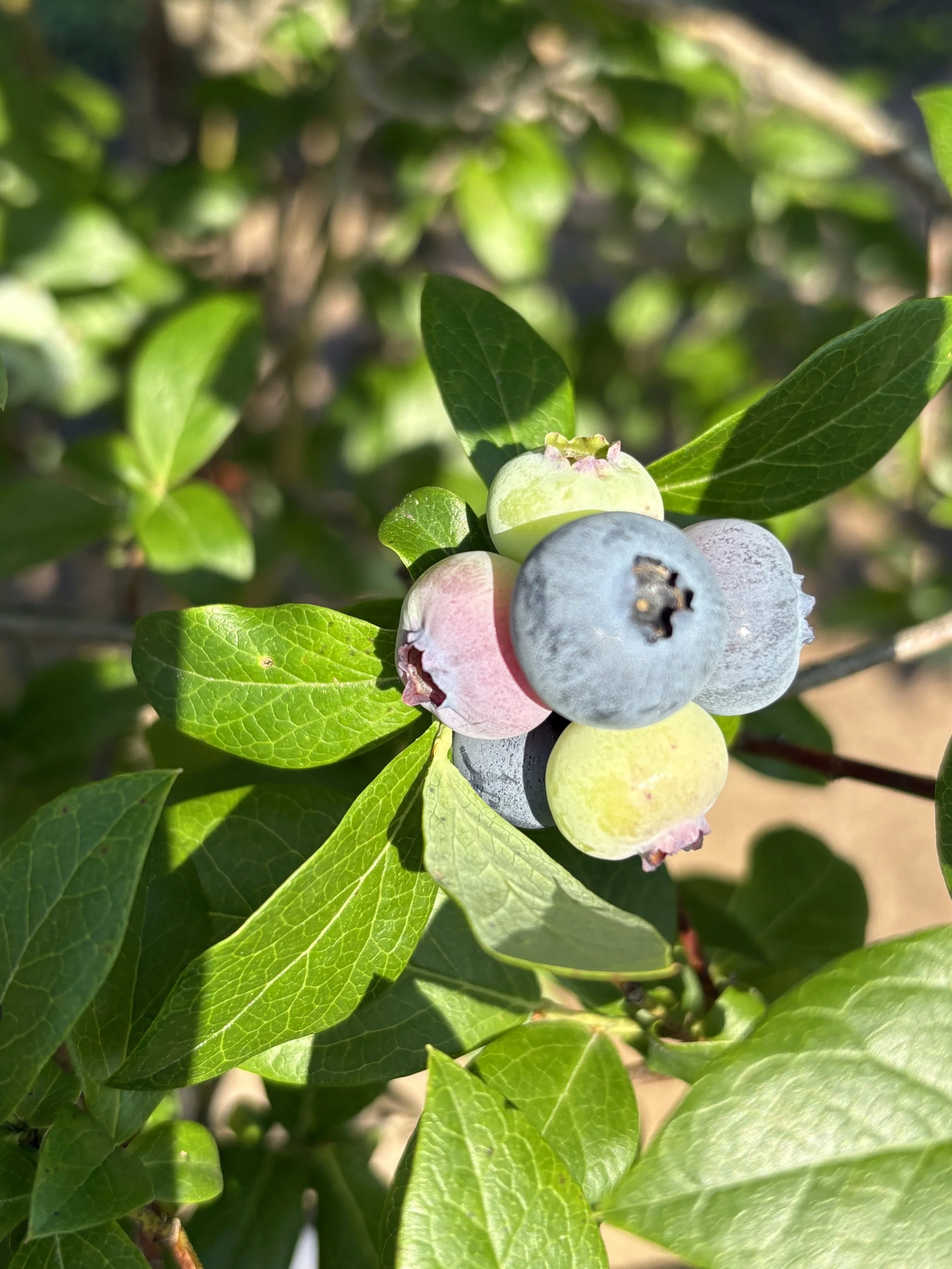At Their Own Pace: Lessons from a Blueberry Field
The blueberry fields—peaceful, still, and full of promise.
Last week, I spent a peaceful morning with my family at a local blueberry farm. It was the kind of visit that quiets the mind—lush fields, warm sun, and the rhythmic, meditative act of picking berries together. We were the only family there, and that stillness offered me something I don’t often find in the busyness of daily life: time to reflect.
At first glance, the rows of blueberry bushes looked uniformly beautiful—green leaves bursting with clusters of berries, their rich blue color popping against the sunlight.
But as I looked more closely, the image reminded me of something deeply familiar: the children at our school. Each unique, each progressing at their own pace, each becoming.
Each bush held berries in different stages of ripening—a quiet reminder of natural timing.
On every bush, the berries told a story of gradual unfolding. Some were deep blue and ready to pick. Others were still tinged pink or pale green. Many bushes held a full spectrum, from barely budding to fully ripe. Some bushes had handfuls of ready fruit, while others had just a few, quietly catching up.
Yet all of them were healthy. All of them were growing. And all of them were exactly where they were meant to be.
The Montessori Approach: Trusting in Natural Development
In Montessori education, we honor this truth every day: Children develop at their own pace. We do not rush or compare. We observe. We prepare. We support.
Dr. Maria Montessori spoke often of the adult’s role not as a director, but as a guide—one who prepares an environment in which growth can happen freely and naturally. This is what we call the prepared environment—a space that is intentional, orderly, and full of opportunities for purposeful work and discovery.
But the prepared environment is not only about materials or classroom aesthetics. It also includes the emotional atmosphere.
A truly prepared environment is one where children feel safe, valued, and respected. It’s a place where their uniqueness is honored, their curiosity is welcomed, and their readiness is trusted.
Some bushes held mostly pink berries—not behind, just not yet ready.
Growth Takes Time—and Trust
There is great humility in letting things unfold in their own time. At the blueberry farm, I didn’t try to pick the pink berries or coax them into ripeness. I trusted the process. I trusted nature. And that same trust is at the heart of what we do in Montessori classrooms every day.
We don’t force reading. We don’t rush math. We offer a rich environment, freedom within structure, and time. And the results speak for themselves—not just in academic skills, but in confidence, independence, and a love of learning.
With the right care, each bush—each child—ripens in their own way, in their own time.
So as we begin a new school year, I carry that image with me: rows of sunlit bushes, each one different, each one thriving. Our work is to observe, to prepare, and to trust. Because every child—like every berry—will be ready when the time is right.




